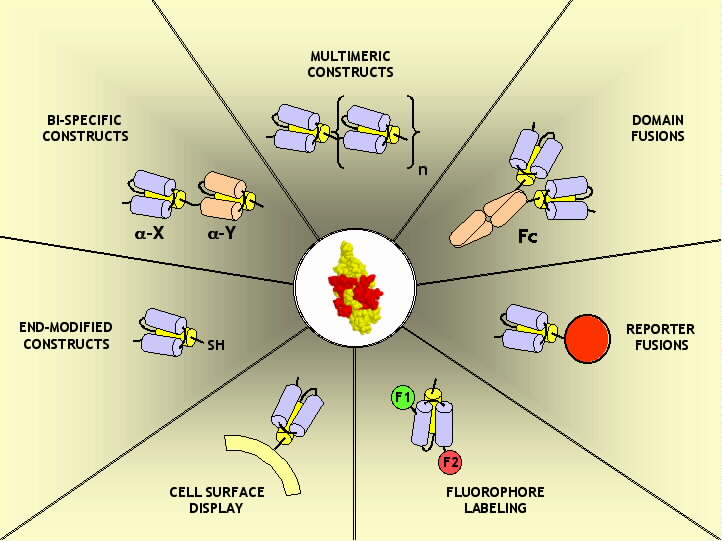 |
| Previous Image | Next Image |
| Description: While there are many applications for molecular biotechnology, an increasingly common application is stem cell research. Biotechnology cells can be utilized in a variety of ways. Researchers may search for cells that cause cancers, psychological ailments and other diseases. Molecular biotechnology can also find cures for disease by manipulating those cells. Stem cells can even be used to reproduce healthy cells that can replace or attack damaged cells. With all of this newer amazing technology, there are new ethical questions that must be answered and the answers adhered to equally. There has been outrage expressed by many people that believe stem cells are the beginning of life, and that using them in research is akin to murder. There are also those that believe life does not begin until birth. Realistically, most people fall somewhere in the middle of the debate. Researchers in molecular biotechnology have encountered protest and have even had to deal with death threats. Like any protest encountered with newer research, some of the protest has calmed down. However, this does not mean that all of the ethical questions involved in research with biotechnology cells have been answered. Those ethical questions will continue to linger, long after the practical applications of stem cell research have been discovered and utilized. Scientists have to confront many issues. They must acquire stem cells for this research. The acquisition of said cells is a frequent a starting point for protest. While scientists frequently clone cells, it is generally believed that they had to start with some portion of what some consider to be human life. Many complain that scientist studying biotechnology cells are playing God and that the outcome for humans will be akin to Armageddon. Once they acquire the cells, they also have to perform research using those cells. The questions here become even more complicated. For instance, at one point are scientists crossing the line with stem cells and research on human subjects. Protests in the field of Molecular biotechnology have brought ethical issues to the forefront of research using biotechnology cells. Scientist must follow a code of ethics. They cannot harm human life in order to protect or heal other human life. The real question is when human life begins. There is no definitive answer. Your thoughts on molecular biotechnology and biotechnology cells will depend on your Molecular biotechnology has the very real possibility of finding cures for deadly diseases that have so far eluded us. While legislation is often unable to keep up with medical science, it is ultimately up to researchers to ensure that ethical principles are adhered to. The prevailing thought in medicine is, “first do not harm”. This mantra needs to apply to researchers in the same manner that it applies to doctors. Regardless of an individuals belief as to when life begins, most people will agree that finding a cure for deadly and debilitating diseases needs to be a priority. Picture Stats: Views: 1150 Filesize: 55.03kB Height: 541 Width: 722 Source: https://biology-forums.com/index.php?action=gallery;sa=view;id=10475 Keywords: ethics in molecular biotechnology |
